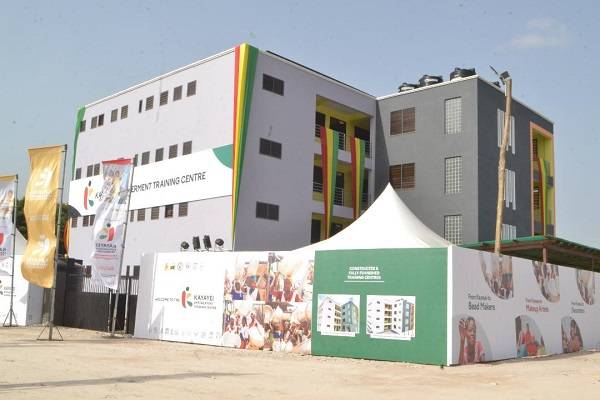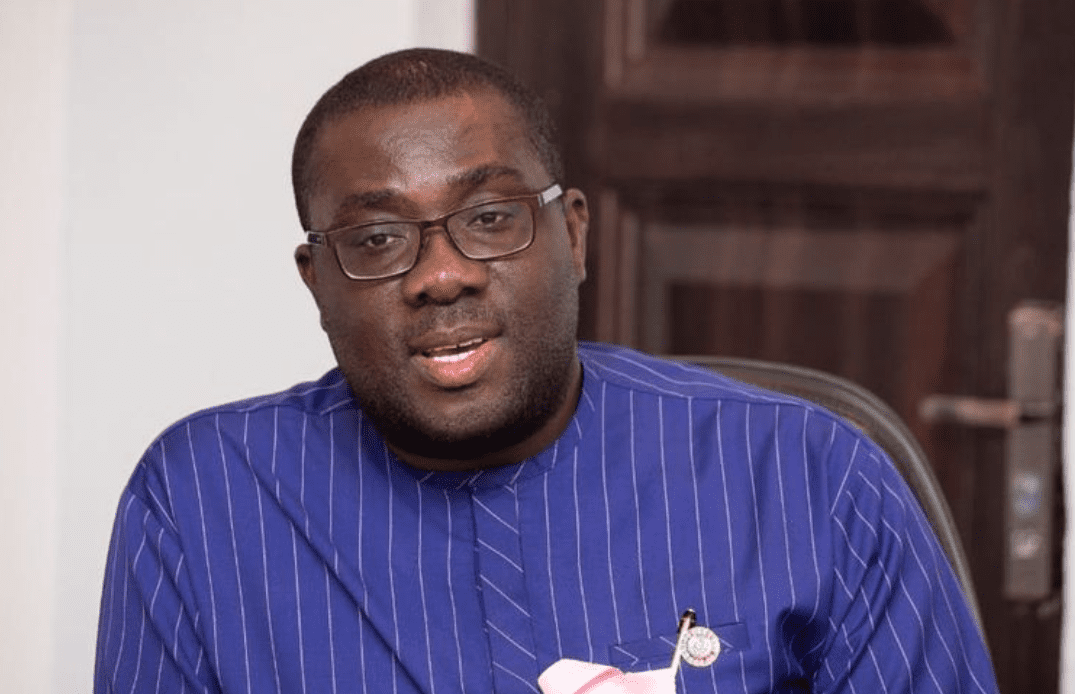ARTICLE AD
The Vice President, Alhaji Dr Mahamudu Bawumia, yesterday performed the twin function of the official launch of the Kayayei Empowerment Programme (KEP) and the inauguration of the commission of the Kayayei Hostel.
The KEP is a comprehensive initiative which aims at providing head potters, popularly referred to as “Kayayei”, with skills training to equip them for the world of work.

As part of the initiative, beneficiaries would be trained in soap making, beads making, bread making, and make ups. In addition, each beneficiary would receive start-up support in terms of machinery and equipment as well as working capital and financial literacy training.
Similarly, the hostel is to provide decent accommodation for the beneficiaries over the period of their skills training. The hostels are located at Madina and Ashaiman in the Greater Accra Region, with two more under construction in Kumasi.
Launching the programme at the Madina Social Centre in the La Nkwatanan Municipality of the Greater Accra Region yesterday, Dr Bawumia said the KEP had been “meticulously conceived and crafted” to provide holistic and sustainable economic empowerment to the beneficiaries.
He explained that it was a multi-faceted programme characterised by a rigorous and exhaustive recruitment process with the first cohort of beneficiaries comprising 5,000 head porters.
“Over the span of three weeks, participants will be immersed in a transformative learning experience, encompassing essential modules such as baking and beading, supplemented by invaluable soft skills training in personal health care, financial management, and entrepreneurial acumen,” he said.
Dr Bawumia said the provision of post-training support and implementation of a track and trace model served as the linchpin of the programme’s efficacy.
He explained that beneficiaries would receive starter packs tailored to facilitate their seamless integration into new economic opportunities and further ensure that beneficiaries do not return to being head porters.
Touching on the hostels, he said they were equipped with modern training facilities, sanitary washrooms, and bathing areas, adding, “These hostels exemplify our unwavering commitment to safeguarding the dignity and well-being of all participants.”
Dr Bawumia said with an overarching goal to empower Kayayei across the country through the transformative power of technical and vocational education and training (TVET), the programme sets out to train a total of 5,000 girls this year, both residential and non-residential.
“In addition to the strides already made, I’m thrilled to announce that discussions are ongoing with Metro Mass and Ayalolo to teach them driving. Furthermore, we will provide them with ICT training. These partnerships will further expand the horizons of the Kayayei Empowerment Programme, offering even more avenues for skills development and economic empowerment,” he said.
The Chief Executive Officer of the Youth Employment Agency (YEA), Kofi Baah Agyepong, said as part of the package, beneficiaries would be given a stipend of GH₵1000 over the one month period of their training.
He said the programme emphasised government’s commitment towards dealing with the vulnerabilities of Kayayei in the country.
On her part, the Administrator of the District Assembly Common Fund, Irene Naa Torshie Addo, said the KEP was a destiny-defining moment as it affirmed female head potters to make them know that it was possible for them to embrace something new and bigger.
She said the DACF required that pre-assessment formed an important criteria for the judicious allocation of funds.
Ms Addo noted that through the fund there had been significant infrastructural development and support for vulnerable groups across the country.
She said the plight of kayayei was one of the most registered plight over the decades, yet no one had done something about it, adding, “We have all been to the market and we see these Kayayei and we make them carry our loads. They suffer headaches and have no place to stay, they suffer malaria and all we do is sometimes give them money when we see them but do not care about their plight.”
BY CLIFF EKUFUL

 7 months ago
62
7 months ago
62 

